The #1 Worst Drink You Should Never Have If You Want to Live to 100
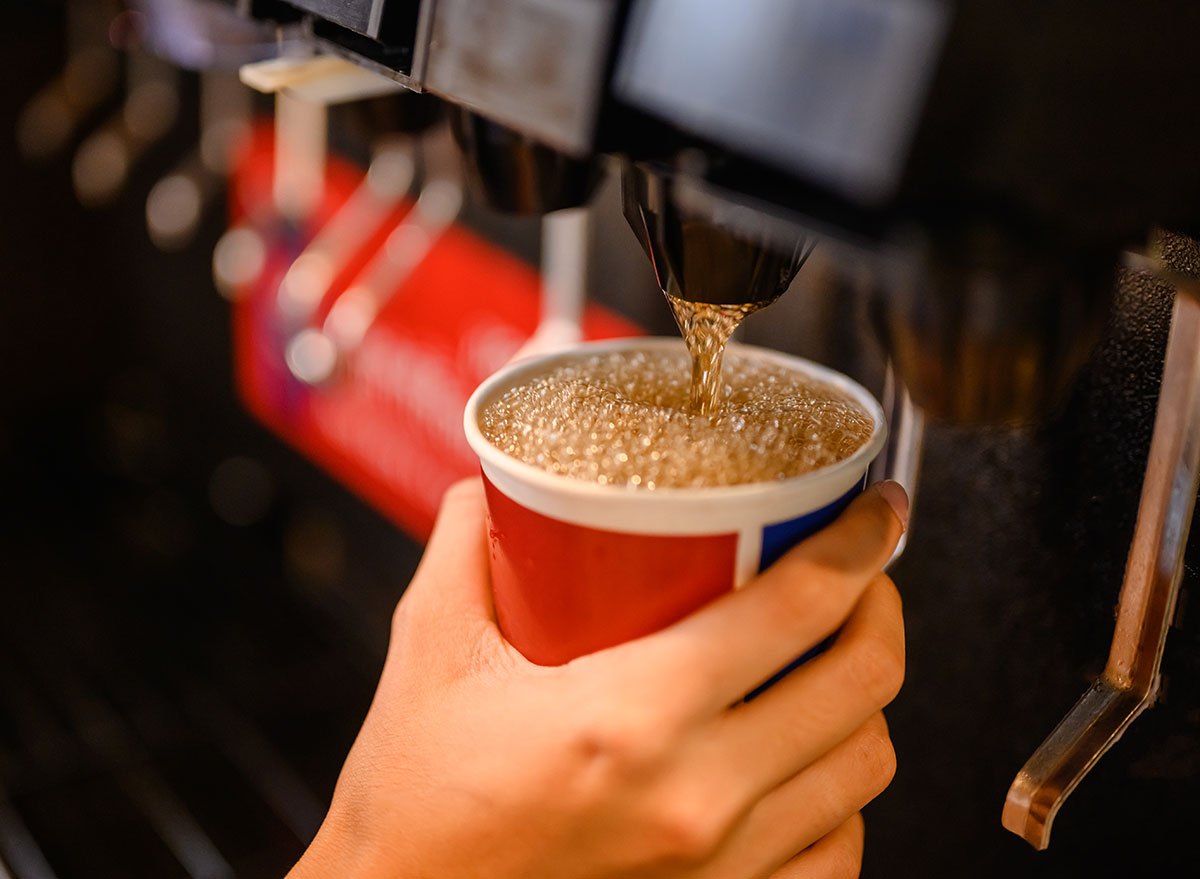
You hear it all the time: My grandmother had a glass of red wine every day and lived to be 102! Here's something you'll never hear: Grandma drinks a whole bottle of wine every day and will turn 100 next May.
While some studies suggest that alcohol, especially red wine, may offer some health benefits, you can rest assured there's nothing healthy about drinking soda. Not only can drinking soda (and other sugar-sweetened beverages, or SSBs for short) lead to obesity, type 2 diabetes, heart disease, and even cancer, soda can also lead to a much shorter, and unhealthier life. The science suggests that SSBs may be the liquid equivalent of a weekly habit of a carton of Marlboros. Soda and its brethren are linked to so many negative health outcomes, you may never reach for another ice-cold 20-ounce cola on a hot day after reading this article. Read on, and for more on how to eat healthy, make sure you avoid these The Worst Soda Habits for Your Waistline, Says Expert.
Soda is linked to early death.
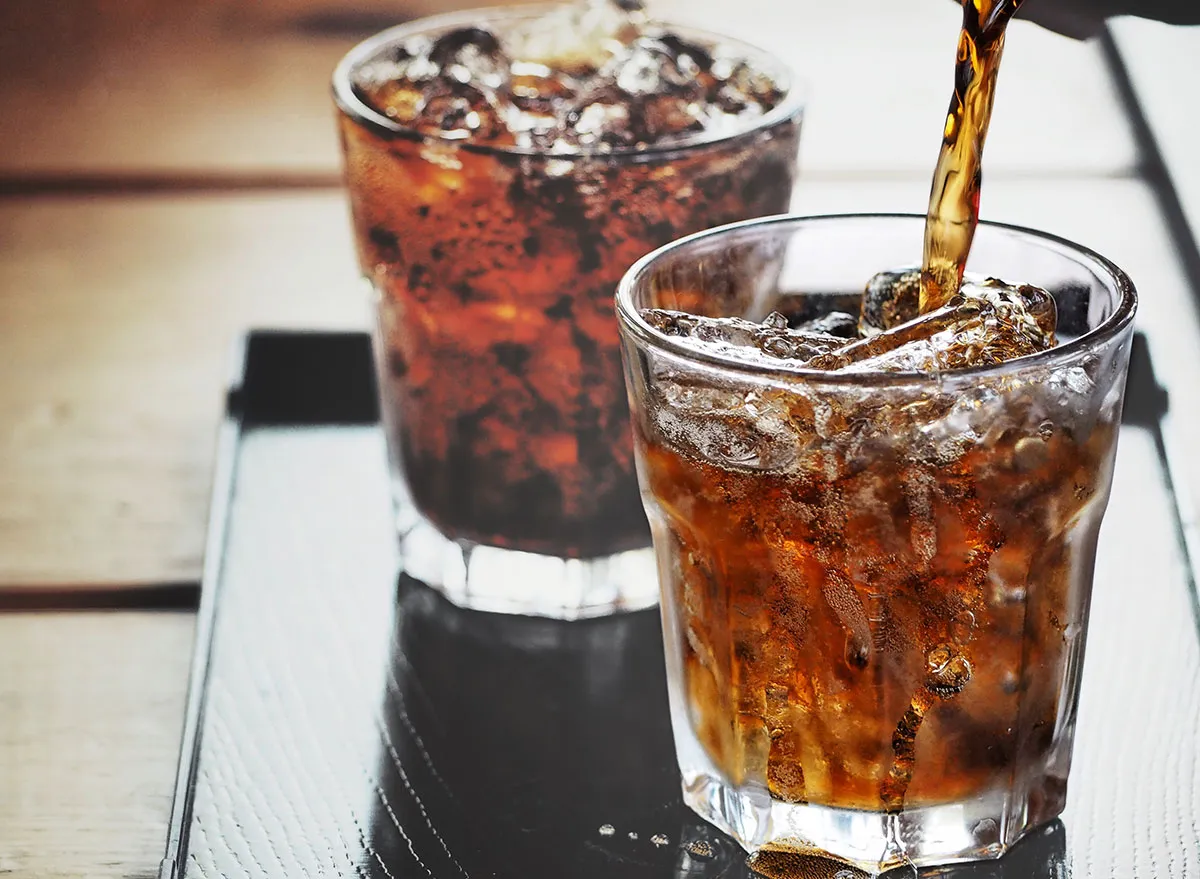
A large study published in 2019 in JAMA Internal Medicine showed an association between greater consumption of SSBs and artificially sweetened soft drinks and all-cause mortality. The study looked at data on more than 450,000 people from 10 countries in Europe and found that those who drank two or more sugary beverages or artificially sweetened beverages daily were more likely to die sooner of any cause compared to people who drank less than one of those drinks per month. Interestingly, the study linked artificially sweetened soft drinks to more deaths from circulatory diseases while SSBs were associated with more deaths from digestive diseases.
You'll gain more of the worst kind of belly fat.
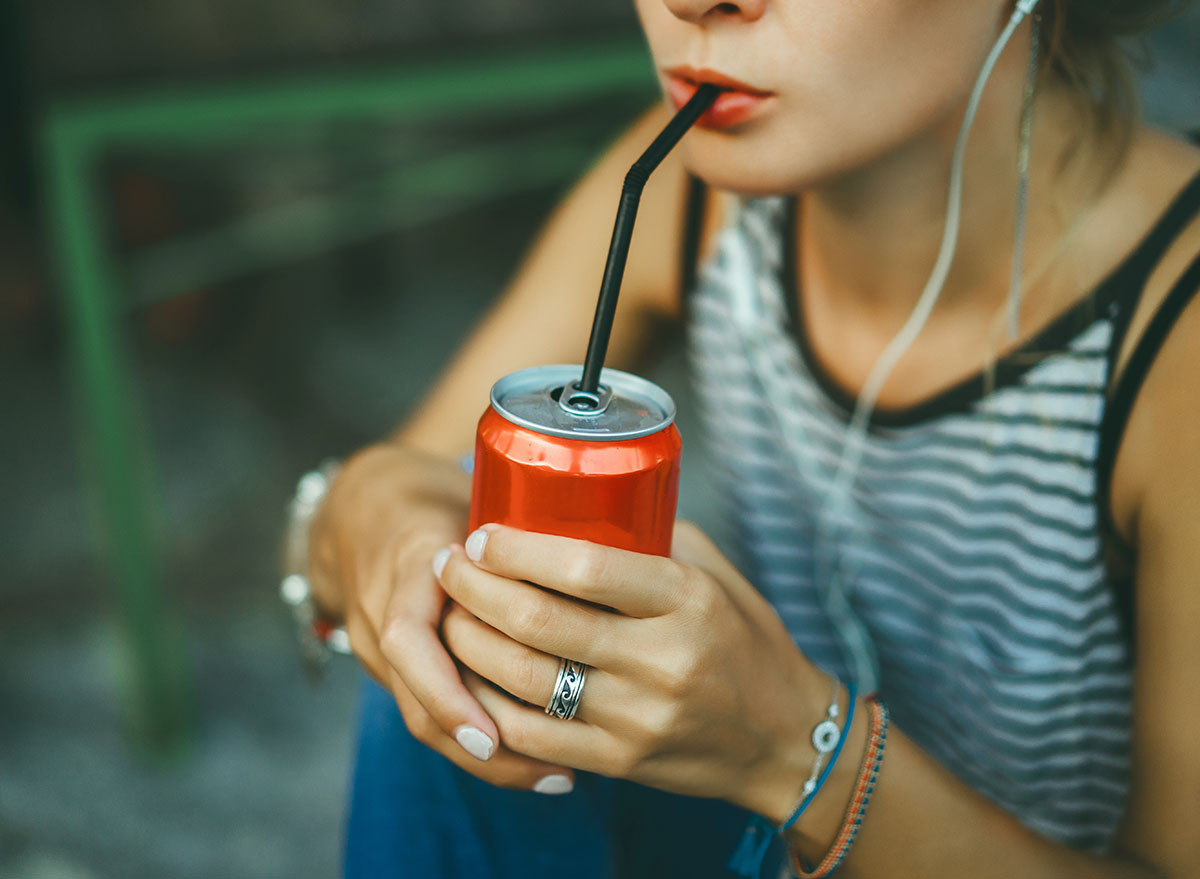
Technically called visceral adipose tissue (VAT), or "the most dangerous belly fat in your body" this kind of deep abdominal fat surrounding your internal organs secretes chemicals that put you at risk for a host of metabolic diseases like type 2 diabetes and cardiovascular disease. A study in the Journal of Nutrition that looked at the soda consumption habits of healthy individuals linked daily soda drinking to a 10% higher volume of VAT when compared to non-sugary beverage drinkers.
This is your brain on orange soda.
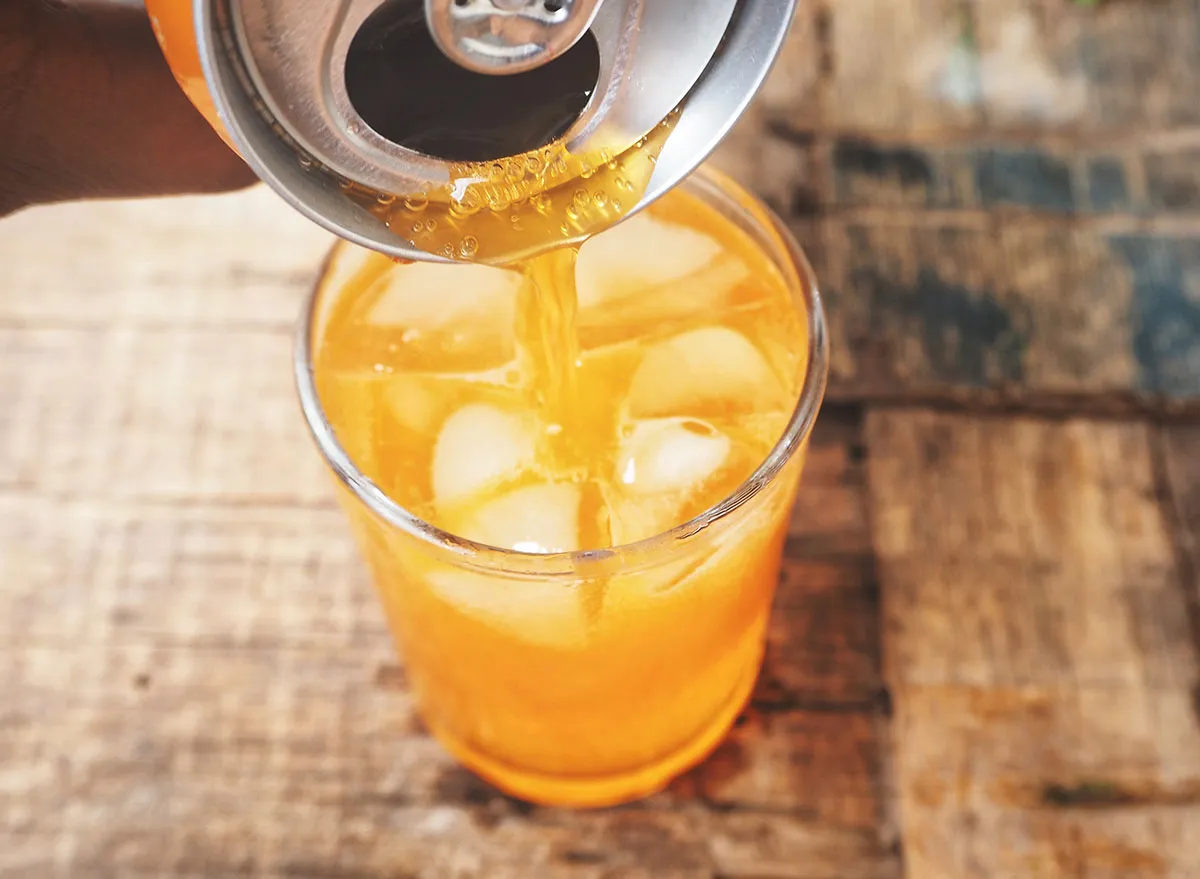
If you want to improve your memory, drinking sugar-sweetened beverages isn't the path to better brainpower.
Researchers analyzed data from the Framingham Heart Study, a large long-term study of the lifestyles of the residents of Framingham, Massachusetts, and found an association between soda drinking and memory problems and an increased risk of dementia, including Alzheimer's disease, as well as stroke.
If you're wondering which types of soda are among the worst for your brain function, it's those neon-colored sodas like orange Fanta (44 grams of sugar per can) and Mountain Dew (46 grams).
Soda may be linked to colon cancer.
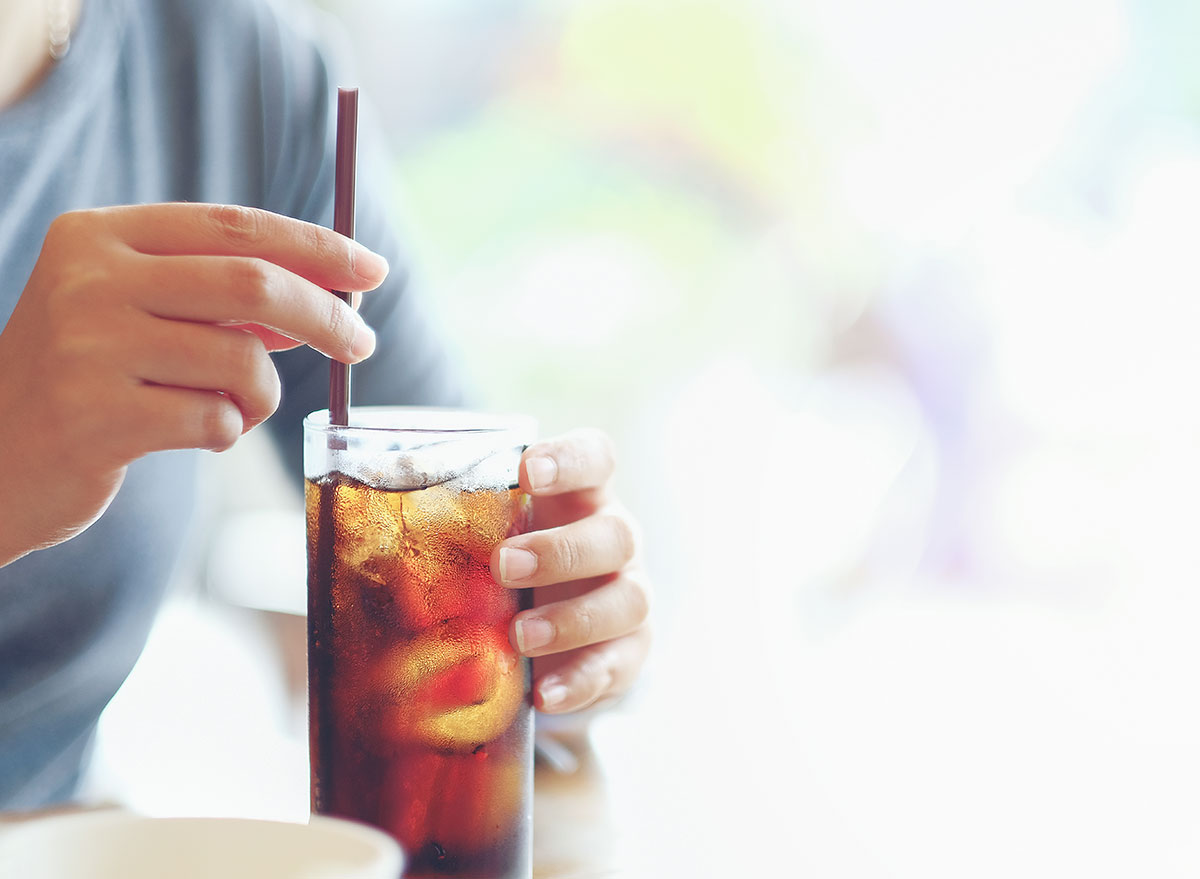
Research published in the British medical journal Gut suggests that a high intake of sugar-sweetened beverages in adolescence and adulthood may increase the risk of early-onset colorectal cancer in women.
By analyzing the dietary and medical records of more than 95,000 women involved in the US Nurses' Health II study over a 24-year period, the researchers found that women who drank more than a pint of sugary beverages a day were twice as likely over the course of the study to be diagnosed with bowel cancer than those who drank less than half a pint a week.
Colas may make your bones weak.
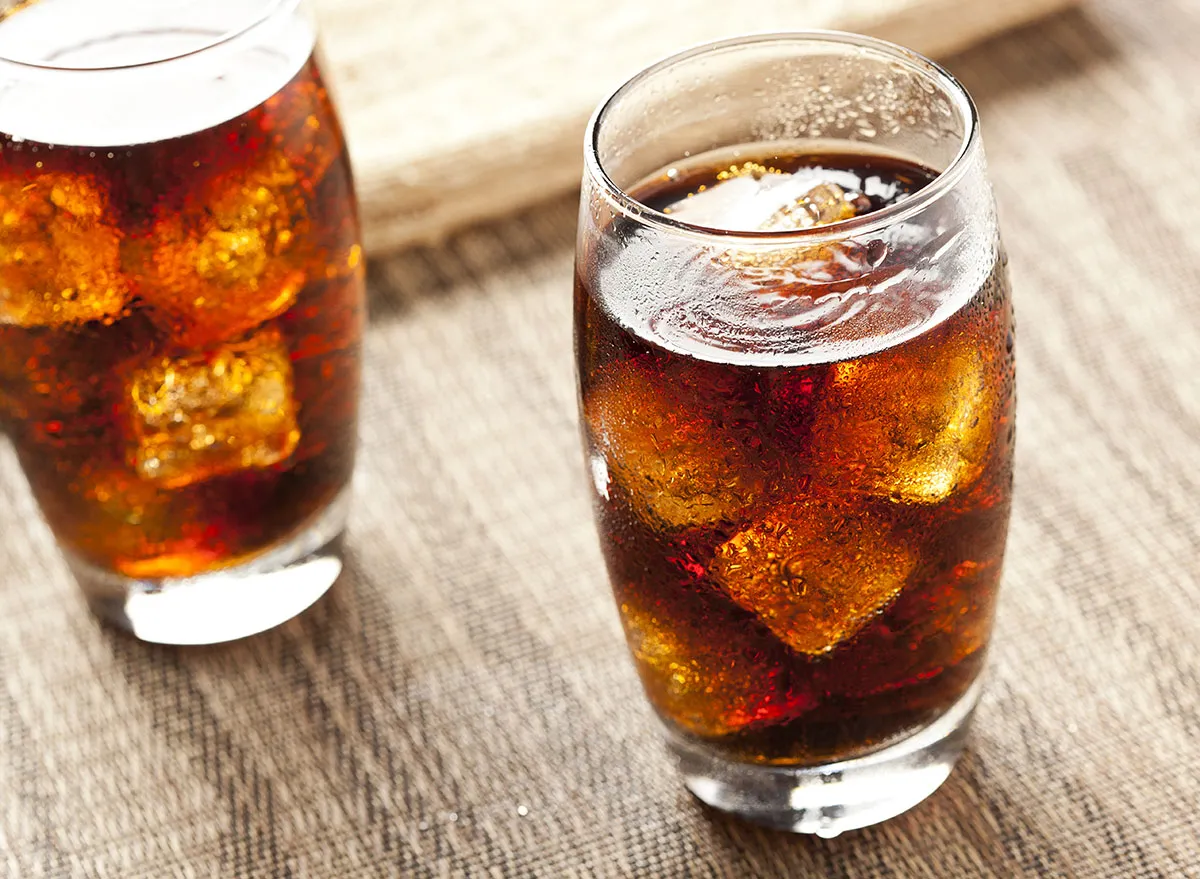
The type of soda you prefer may have an impact on a particularly important structural part of your body, namely your bones.
Using data from the Framingham Osteoporosis Study, researchers compared bone mineral density, a component of bone strength, at the hip and spine in 2,000 participants against dietary information from a food-frequency questionnaire. It turned out that consumption of cola (about four servings a week) was associated with significantly lower bone density in the hips in the women studied. (But the same result was not found in men.)
Sodas and other SSBs may harm your heart.

Dietitians and cardiologists have long advised against consuming lots of added sugars from all sorts of sources because of a potential increase in risk for heart disease. In 2020, an observational study in the Journal of the American Heart Association looked at medical and dietary data of nearly 6,000 people and found that when compared to people who drank no sugar-sweetened beverages, those who drank one serving or more per day of soda or other sugary beverages had significantly higher triglyceride (blood fat) levels and decreased high-density lipoprotein cholesterol (HDL), the protective "good" cholesterol.
High triglycerides and low HDL indicate an increased risk of cardiovascular disease, suggesting that SSB intake may be the mechanism that boosts your chances of developing heart trouble.
Read this next:
- Ways to Live to 100, Say Experts
- 20 Foods You Should Be Eating Every Day for a Longer Life
- The #1 Worst Drink for Weight Loss, New Study Finds








